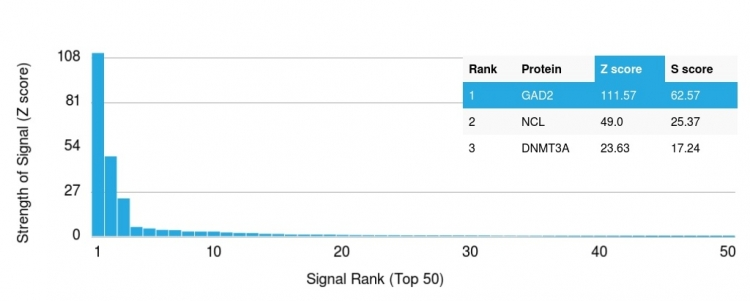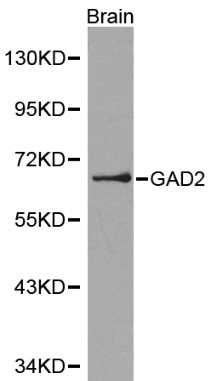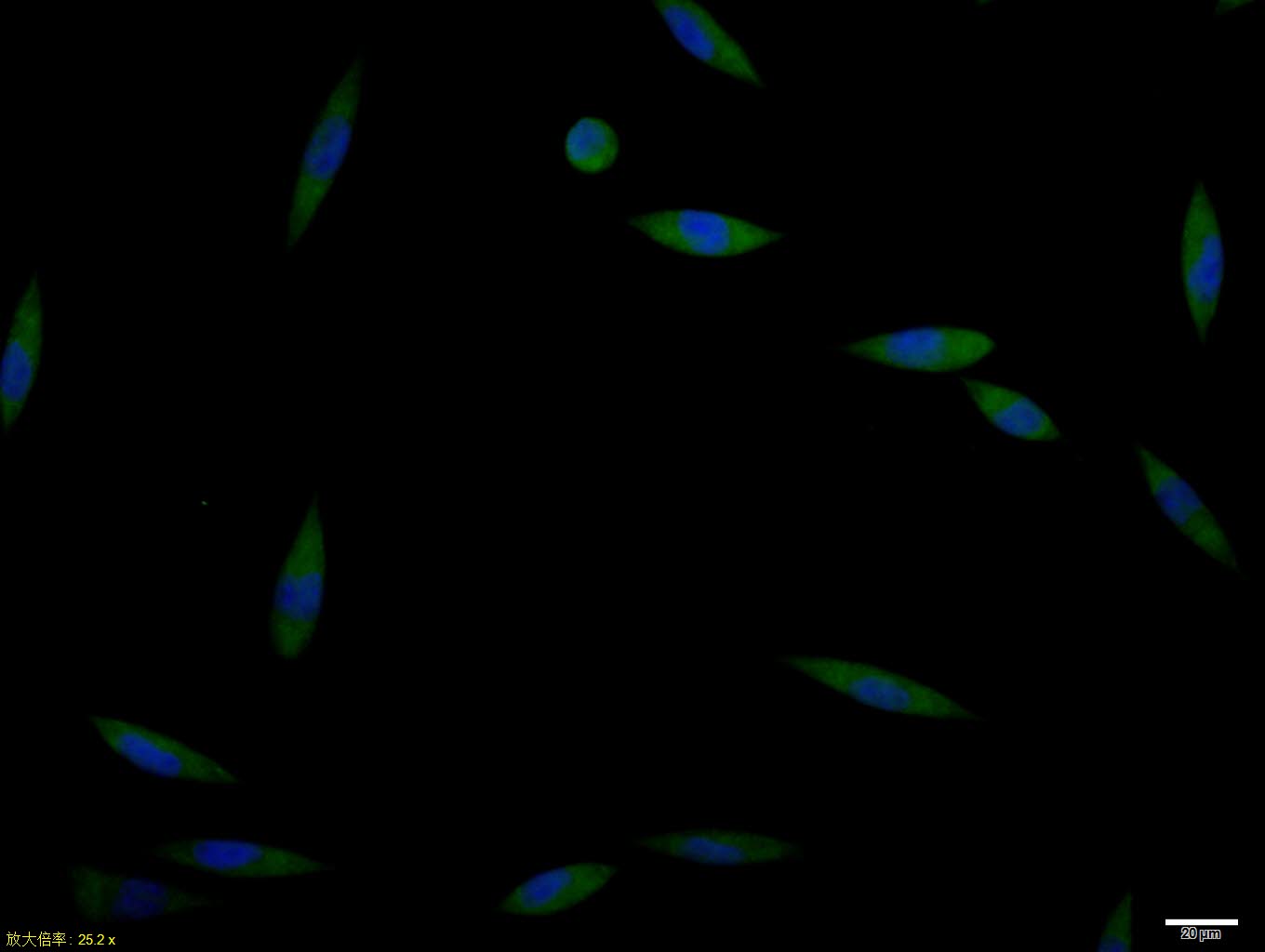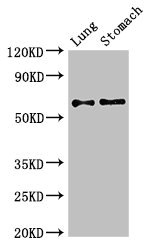
Analysis of Protein Array containing more than 19,000 full-length human proteins using GAD2 (GAD65) Mouse Monoclonal Antibody (GAD2/1960). Z- and S- Score: The Z-score represents the strength of a signal that a monoclonal antibody produces when binding to a particular protein on the HuProtTM array. Z-scores are described in units of standard deviations (SD’s) above the mean value of all signals generated on that array. If targets on HuProtTM are arranged in descending order of the Z-score, the S-score is the difference (also in units of SD’s) between the Z-score. S-score therefore represents the relative target specificity of a Monoclonal Antibody to its intended target. A Monoclonal Antibody is considered to specific to its intended target if the Monoclonal Antibody has an S-score of at least 2.5. For example, if a Monoclonal Antibody binds to protein X with a Z-score of 43 and to protein Y with a Z-score of 14, then the S-score for the binding of that Monoclonal Antibody to protein X is equal to 29.
GAD65 antibody [GAD2/1960]
GTX17966
ApplicationsImmunoHistoChemistry, ImmunoHistoChemistry Paraffin, Other Application
Product group Antibodies
ReactivityHuman
TargetGAD2
Overview
- SupplierGeneTex
- Product NameGAD65 antibody [GAD2/1960]
- Delivery Days Customer9
- Application Supplier NoteIHC-P: 0.1-0.2microg/ml for 30 min at RT. *Optimal dilutions/concentrations should be determined by the researcher.Not tested in other applications.
- ApplicationsImmunoHistoChemistry, ImmunoHistoChemistry Paraffin, Other Application
- CertificationResearch Use Only
- ClonalityMonoclonal
- Clone IDGAD2/1960
- Concentration0.2 mg/ml
- ConjugateUnconjugated
- Gene ID2572
- Target nameGAD2
- Target descriptionglutamate decarboxylase 2
- Target synonymsGAD65, glutamate decarboxylase 2, 65 kDa glutamic acid decarboxylase, GAD-65, Glutamate decarboxylase-2 (pancreas), glutamate decarboxylase 2 (pancreatic islets and brain, 65kDa)
- HostMouse
- IsotypeIgG2b
- Protein IDQ05329
- Protein NameGlutamate decarboxylase 2
- Scientific DescriptionThis gene encodes one of several forms of glutamic acid decarboxylase, identified as a major autoantigen in insulin-dependent diabetes. The enzyme encoded is responsible for catalyzing the production of gamma-aminobutyric acid from L-glutamic acid. A pathogenic role for this enzyme has been identified in the human pancreas since it has been identified as an autoantibody and an autoreactive T cell target in insulin-dependent diabetes. This gene may also play a role in the stiff man syndrome. Alternative splicing results in multiple transcript variants that encode the same protein. [provided by RefSeq, Oct 2008]
- ReactivityHuman
- Storage Instruction-20°C or -80°C,2°C to 8°C
- UNSPSC41116161

![IHC-P analysis of human pancreas tissue using GTX17966 GAD65 antibody [GAD2/1960]. IHC-P analysis of human pancreas tissue using GTX17966 GAD65 antibody [GAD2/1960].](https://www.genetex.com/upload/website/prouct_img/normal/GTX17966/GTX17966_20200115_IHC-P_873_w_23060620_755.webp)








![IHC-P analysis of human pancreatic neuroendocrine tumor (PNET) tissue using GTX04477 GAD65 antibody [MSVA-602M] HistoMAX?. Pancreatic neuroendocrine tumor with strong GAD65 immunostaining of tumor cells.](https://www.genetex.com/upload/website/prouct_img/normal/GTX04477/GTX04477_20230728_IHC-P_54_23072722_448.webp)